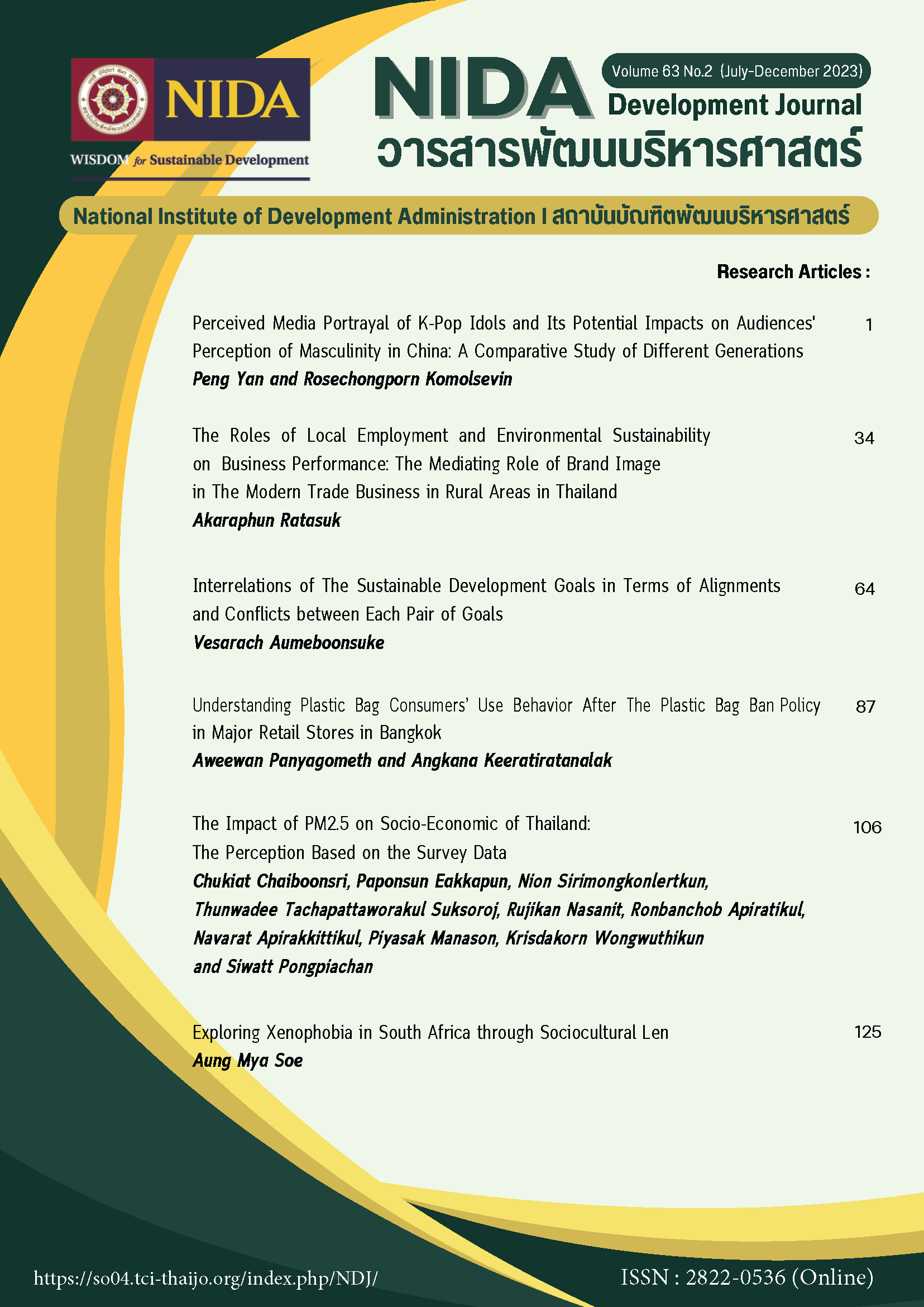Understanding Plastic Bag Consumers’ Use Behavior After The Plastic Bag Ban Policy in Major Retail Stores in Bangkok
DOI:
https://doi.org/10.14456/ndj.2023.4Keywords:
Plastic Bag Ban Policy, Plastic Waste Management, Policy EvaluationAbstract
Thailand has implemented a campaign on stop giving free single use plastic bag in 75 majors retail stores since January 1, 2020. This study aims to understand the effectiveness of the campaign and the behaviour changes of consumers after the campaign. This study estimated number of plastic bag use in Bangkok and develop the knowledge, attitude and practice (KAP) model to investigate plastic bag consumption behaviors among Bangkok consumers. The results showed that the campaign is effective especially in the super market and convenient stores. The number of plastic bags use per visit are approximately 1.9 and 1.7 bags. According to our survey results, fresh market, restaurant, and food delivery are the major sources of plastic bag consumption, on average 3.7, 3.1, and 2.8 bags per visit. On average people in Bangkok use approximately 1.2 bags/person/day. According to the KAP model, knowledge about environmental impact of plastics does not only have a positive effect on attitudes towards plastic bag usage and plastic waste but it also has a direct effect on behaviors in using plastic bags and sorting waste. It is important to continuously communicate about environmental impact of plastics to emphasize proper knowledge and attitudes towards plastic bags among people and to bring out cooperative behaviors in reducing the use of plastic bags and sorting waste for a better environment.
References
Gölemerz, T., Akdaş, M., Paslı, S., Farhana, S., Bakkalbaşı, F. N., & Jankowska, K. (2021). Knowledge, atitutedes and practices (KAP) assessment on Covid-19 (round 2). Retrieved from https://data.unhcr.org
Manika, D., Papagiannidis, S., Bourlakis, M., & Clarke, R. M. (2021). Drawing on Subjective Knowledge and Information Receptivity to Examine an Environmental Sustainability Policy: Insights from the UK’s Bag Charge Policy. European Management Review, 18, 249–262. doi:DOI: 10.1111/emre.12453
Oguge, N., Oremo, F., & Adhiambo, S. (2021). Investigating the knowledge and attitudes towards plastic pollution among the youth in Nairobi, Kenya. Social Sciences, 10(408).
Otsyina, H. R., Nguhiu-Mwangi, J., Mogoa, E. G. M., Mbuthia, P. G., & Ogara, W. O. (2018). Knowledge, attitude, and practices on usage, disposal, and effect of plastic bags on sheep and goats. Tropical Animal Health and Production, 50 (5), 997-1003. doi:doi: 10.1007/s11250-018-1523-9
Pollution control department. (2021). Action Plan on Plastic Waste Management Phade 1 (2020-2022). Retrieved from https://www.pcd.go.th/wp-content/uploads/2021/10/pcdnew-2021-10-20_03-49-42_906382.pdf
Vassanadumrongdee, S., Hoontrakool, D., & Marks, D. (2020). Perception and Behavioral Changes of Thai Youths Towards the Plastic Bag Charging Program. Applied Environmental Research, 42(2), 27-45.
Vicharn Simachaya. (2020). Plastic waste increased 60 percent during Covid 19
Downloads
Published
How to Cite
Issue
Section
License
Copyright (c) 2023 NIDA Development Journal

This work is licensed under a Creative Commons Attribution-NonCommercial-NoDerivatives 4.0 International License.





